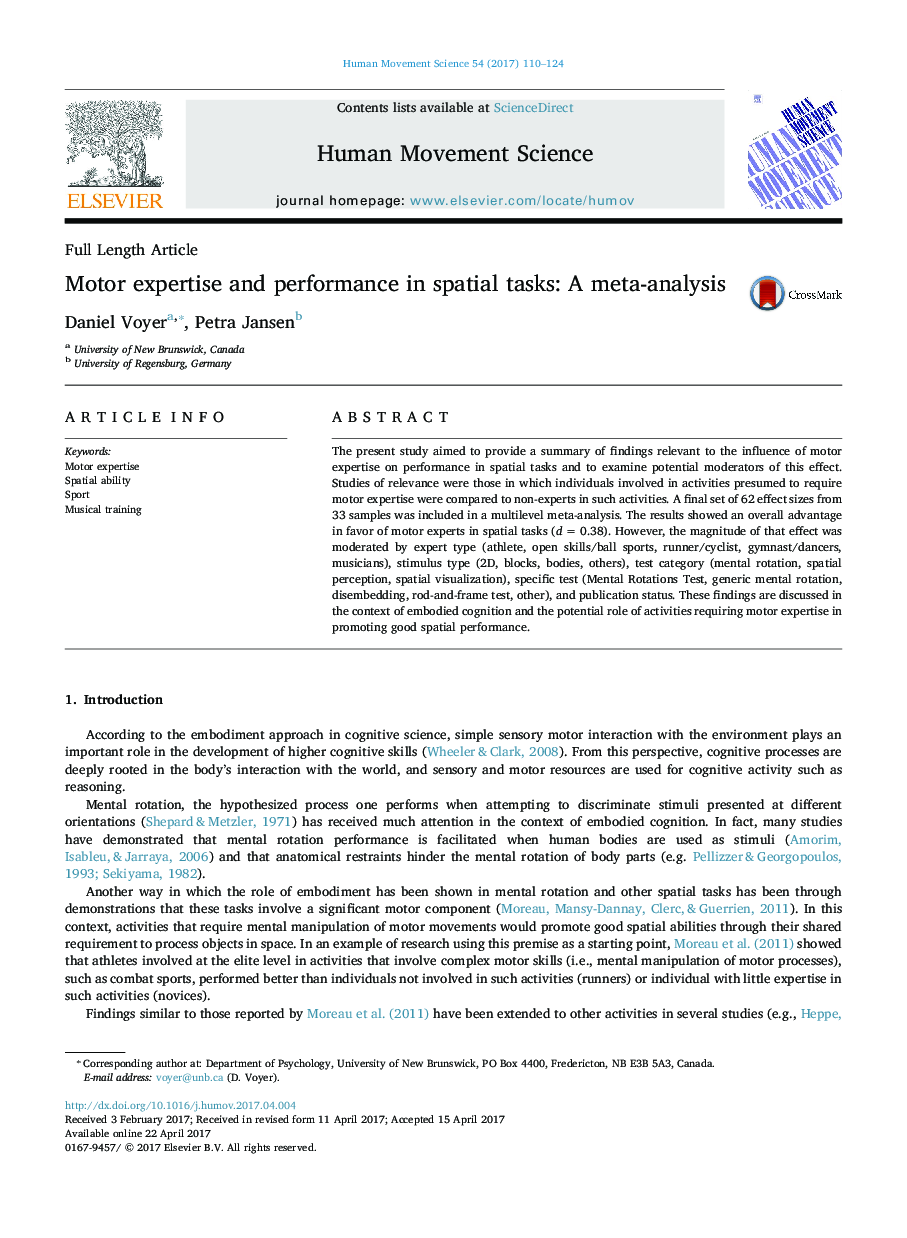| Article ID | Journal | Published Year | Pages | File Type |
|---|---|---|---|---|
| 5041971 | Human Movement Science | 2017 | 15 Pages |
â¢Examined literature on the effects of motor expertise on spatial test performance.â¢Used multilevel meta-analysis to quantify the effects and explore moderators.â¢Retrieved literature produced a medium overall effect of motor expertise.â¢Expert type, stimulus type, test, and publication status moderated the effects.â¢Findings are discussed in the context of embodied cognition.
The present study aimed to provide a summary of findings relevant to the influence of motor expertise on performance in spatial tasks and to examine potential moderators of this effect. Studies of relevance were those in which individuals involved in activities presumed to require motor expertise were compared to non-experts in such activities. A final set of 62 effect sizes from 33 samples was included in a multilevel meta-analysis. The results showed an overall advantage in favor of motor experts in spatial tasks (d = 0.38). However, the magnitude of that effect was moderated by expert type (athlete, open skills/ball sports, runner/cyclist, gymnast/dancers, musicians), stimulus type (2D, blocks, bodies, others), test category (mental rotation, spatial perception, spatial visualization), specific test (Mental Rotations Test, generic mental rotation, disembedding, rod-and-frame test, other), and publication status. These findings are discussed in the context of embodied cognition and the potential role of activities requiring motor expertise in promoting good spatial performance.
